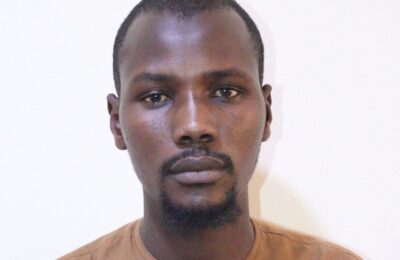In the sacred corridors of divine utterance, the prophetic voice has long resounded—thunderous in antiquity, tender in the Gospels, and ironical in its evolution. From the tempestuous firebrands of the Old Covenant to the lamb-like emissaries of the New, prophecy journeys through a dramatic metamorphosis, clashing not in truth but in tone, purpose, and dispensation. This tension—at once theologically enriching and existentially bewildering—underscores the paradoxical majesty of God’s multifaceted communication.
Old Testament prophets roared like celestial tempests. Their messages cracked like lightning against a darkened sky of rebellion and idolatry. Elijah, a solitary colossus, summoned fire upon the prophets of Baal (1 Kings 18), and Samuel executed judgment with a sword still wet from obedience (1 Samuel 15). These were men hewn from heavenly granite, their tongues forged in the furnace of divine fury. To them, prophecy was warfare—divine litigation against a defiant generation. Their mantle was heavy with national destiny, their utterance a divine subpoena to kings and empires.
Then comes the seismic shift—a Nazarene who does not call down fire, but absorbs it. Jesus, Saviour, Prophet and Redeemer, walked the earth not with flaming chariots but with wounded hands. When spurned by a Samaritan village, He forbade vengeance (Luke 9:54–56). His most potent prophetic moment occurred not atop Sinai, but nailed to a Roman cross—declaring, “Father, forgive them” (Luke 23:34). His power was cloaked in paradox—divinity restrained by mercy, thunder translated into tears. He fulfilled prophecy not by condemning rebels, but by redeeming them.
This dichotomy is not a contradiction, but a covenantal transition. It is what Apostle Paul deemed “a mystery revealed” (Colossians 1:26)—not a change in God’s essence, but a divine recalibration of approach. Hebrews 1:1–2 captures it best: “God, who at sundry times and in divers manners spake in time past… hath in these last days spoken unto us by His Son.” The Old Testament thunders through veils; the New Testament unveils the face behind the thunder.
Still, irony abounds. The very leaders entrusted with guarding prophetic heritage became executioners of the new. “Woe unto you,” Jesus lamented, “for you build tombs for the prophets your fathers killed” (Luke 11:47). And in a scene drenched in symbolism, Christ stood flanked by Moses and Elijah on the Mount of Transfiguration—law and fire, now transfigured under the gentle weight of grace. The torch did not drop; it transformed.
Critics often exploit this prophetic divergence to discredit Scripture, citing divine genocide in Joshua and juxtaposing it against the Sermon on the Mount. But they miss the narrative arc. The shift from judgment to mercy is not divine schizophrenia—it is a redemptive crescendo. The prophets of old were scaffolds; Christ is the edifice. The iron rod was never meant to be the final scepter—it bowed to the scepter of grace. The contradiction is humanly perceived; the harmony is eternally ordained.
In African Christendom, this transition resonates deeply. Apostle Ayo Babalola thundered in the wilderness and healed in the cities, embodying both judgments and balm. Prophet TB Joshua merged visions with deliverance, prayer with compassion—his life a canvas of old and new prophetic hues. Even the great Archbishop Benson Idahosa once warned, “Power without purity is perversion.” This is the crux of the matter: the prophetic office is not a pedestal for applause—it is a crucible for obedience.
To the youth of this generation—those enamored with titles, mantles, and ministerial theatrics—heed this solemn counsel: Do not covet the office unless you are ready for its consecration. The prophet’s path is not a corridor of glamour but a trail of groaning. It is easier to wear a cassock than to carry a cross. The prophetic voice is not conjured in a studio—it is birthed in secret altars, marinated in intercession, and sanctified by suffering.
True prophets do not chase crowds—they carry burdens. They are not celebrities of the pulpit, but custodians of divine mysteries. If Elijah called fire, it was because he had first laid down his life on the altar. If Christ forgave enemies, it was because He bore their punishment. Youths must realize: divine utterance without divine intimacy is noise. A rented voice cannot sustain a real mantle.
The thrones of thunder have not vanished; they have been crowned with mercy. The whispers of grace are not weak—they are sovereign. In a world enamored by noise, the still small voice remains the most disruptive. So choose your fire: the one that burns others or the one that burns within. For only the latter refines.
– Inah Boniface Ocholi writes from Ayah – Igalamela/Odolu LGA, Kogi state.
08152094428 (SMS Only)




